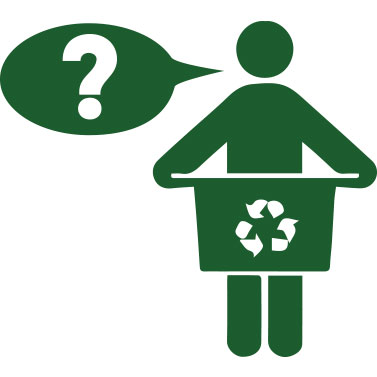https://github.com/nathancooperjones/recycling_classification
Using deep learning to determine types of recyclables.
https://github.com/nathancooperjones/recycling_classification
Last synced: 2 months ago
JSON representation
Using deep learning to determine types of recyclables.
- Host: GitHub
- URL: https://github.com/nathancooperjones/recycling_classification
- Owner: nathancooperjones
- Created: 2019-10-21T23:56:04.000Z (over 5 years ago)
- Default Branch: master
- Last Pushed: 2020-02-19T22:33:40.000Z (over 5 years ago)
- Last Synced: 2025-02-10T22:29:18.390Z (4 months ago)
- Language: Jupyter Notebook
- Size: 23.8 MB
- Stars: 1
- Watchers: 2
- Forks: 0
- Open Issues: 0
-
Metadata Files:
- Readme: README.md
- Changelog: CHANGELOG.md
Awesome Lists containing this project
README
# Deep Learning Recycling Classification

Have you ever held a piece of trash and been paralyzed with the fear of the unknown: is it trash or recycling? If it's trash that ends up in recycling, the whole bin could be contaminated, killing the planet! If it's recyclables ending up in the trash, you missed a potential opportunity to save the planet, thereby killing the planet! It is _this_ endless confusion that brought the idea for a recycling detection algorithm, one that inputs a picture and tells you not only if something is recyclable, but how to properly recycle it.
Using `fastai`'s deep learning library, this is a small project made to do just this: input images to determine types of recyclables and providing proper recycling instructions for each through a simple API.

### App Functionality Checklist
- [X] Curate initial dataset
- [X] Create preliminary deep learning model with this initial dataset
- [X] Set up Flask app to accept images and return predicted recyclable class
- [ ] Advance image dataset to include more real-world examples, more categories, etc.
- [ ] Create more advanced deep learning model with this newer dataset
- [ ] Use object detection model to determine recyclable class for many objects in an image
- [ ] Deploy this for public use
### Development
Begin by installing [Docker](https://docs.docker.com/install/) if you have not already. Once Docker is running, run development from within the Docker container:
```bash
# export path to data directory to mount in Docker container
export RECYCLE_DATA_PATH=$HOME/data/recycling_classification
# build the Docker image
docker build -t recycling_classification .
# run the Docker container in interactive mode.
docker run \
-it \
--rm \
-v "${RECYCLE_DATA_PATH}:/data" \
-v "${PWD}:/recycling_classification" \
-p 8888:8888 \
-p 80:80 \
-e AWS_ACCESS_KEY_ID="$(aws --profile default configure get aws_access_key_id)" \
-e AWS_SECRET_ACCESS_KEY="$(aws --profile default configure get aws_secret_access_key)" \
recycling_classification /bin/bash -c "pip install -r requirements-dev.txt && bash"
```
Note: If you want to override which model is downloaded, you can set the S3 path(s) for the object by passing an environment variable in with the `docker run` command, e.g.
```bash
-e MODEL_FILENAME="other/url/here/new_model.pkl" \
```
Before starting the app, download the desired model and mapping dictionary with:
```bash
bash download_data.sh
```
From within the container, either of the following two commands will start the app:
```bash
# Debug mode with flask native serving
python3 recycling_classification/app.py
# Production mode with gunicorn serving
bash run_app.sh
```
In either setup, we can still make requests to the service with
```bash
curl -X GET http://0.0.0.0:80/health
```
### Start Jupyter Lab
To run jupyterlab, start the container and execute the following:
```bash
jupyter lab --ip 0.0.0.0 --no-browser --allow-root --NotebookApp.token='' --NotebookApp.password=''
```
Connect to Jupyter here: [http://localhost:8888/tree?](http://localhost:8888/tree?)
## Unit Tests
There are two types of unit tests in this repo to be run in the Docker container:
1. Library Unit Tests
2. RESTful API Unit Tests
#### Run Library Unit Tests
```bash
# execute unit tests
pytest -v tests/recycling_classification
```
#### Run RESTful API Unit Tests
```bash
# Start a tmux multiplexer
tmux
# Start API service
bash entrypoint.sh
# split terminal window in tmux
# ctrl + b , "
# In new terminal window
pytest -v tests/app
```